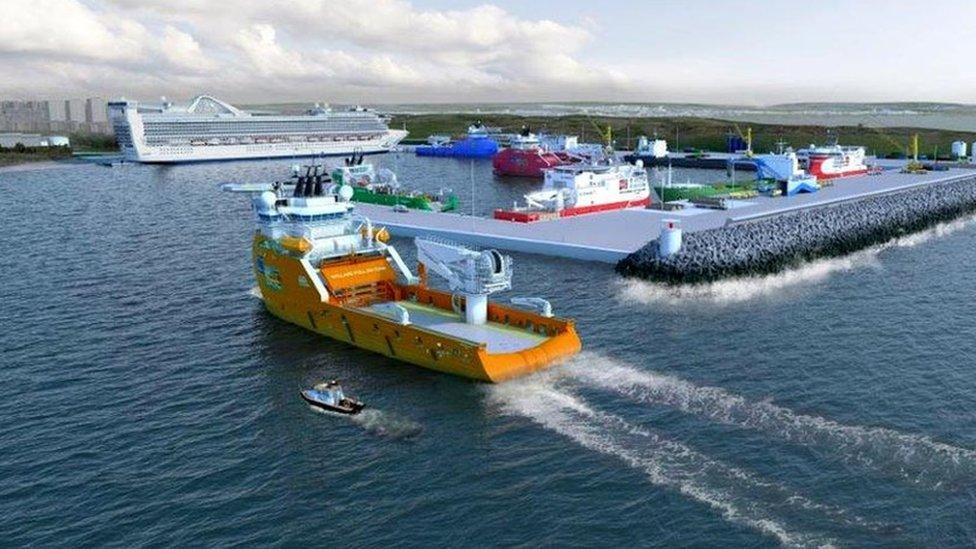Climate change: Aberdeen Harbour and BP in bid to reduce emissions
- Published
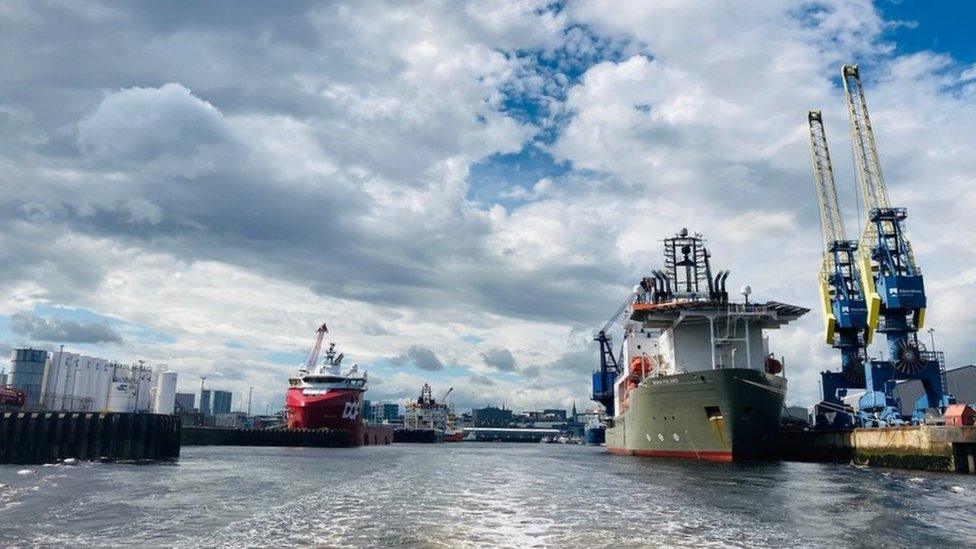
The harbour board will work with energy giant BP
Aberdeen Harbour and BP are to work together in a bid to identify ways to decarbonise port operations.
The harbour board and the energy giant are aiming to develop plans that could reduce emissions from vessels using the port.
Potential projects include exploring using hydrogen as a clean marine fuel.
Last month, the city council confirmed BP as its preferred bidder for a commercial partnership to help Aberdeen become a leading hydrogen hub.
Under the new memorandum of understanding, the harbour and BP will also explore the potential for a pilot project to supply shore power.
This would allow vessels to turn off their main engines while in port to reduce emissions and noise.
It comes as a £350m harbour expansion project continues.
The work to make a new deeper and larger harbour is the largest marine infrastructure project in the UK.
It will be able to provide space for cruise ships and renewable energy projects.
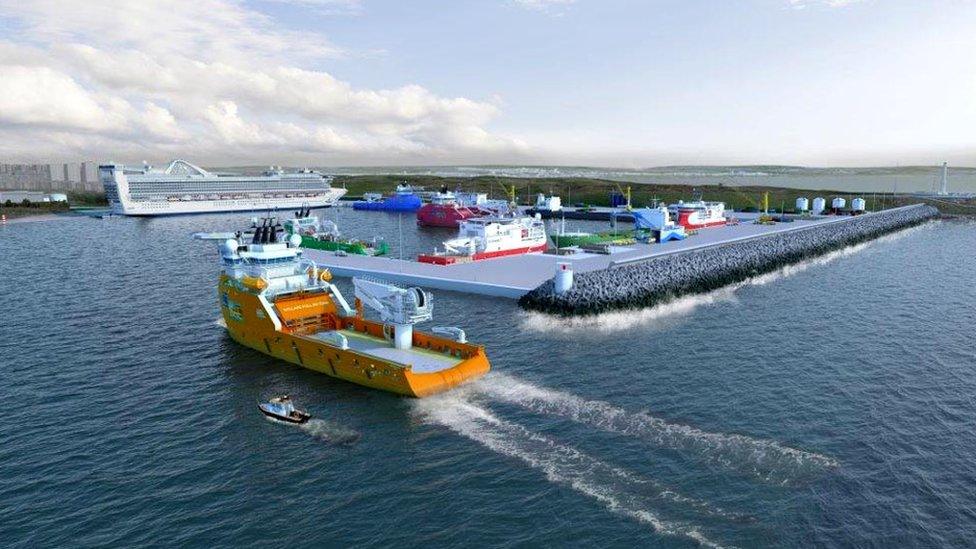
The harbour expansion will provide space for cruise ships and renewable energy projects
Aberdeen Harbour Board chief executive Bob Sanguinetti said the collaboration with BP came at a "significant time".
He said: "Reducing emissions from vessels berthed in the port and providing low carbon power supplies will be critical to achieving a green maritime industry and requires innovative thinking and practices."
BP North Sea senior vice president Emeka Emembolu said: "For nearly 30 years, Aberdeen Harbour has provided BP with world-class facilities in support of our North Sea oil and gas operations."
He added that BP was "delighted" to be strengthening the relationship.
Earlier this month, BP announced bumper profits after oil and gas prices soared amid a global economic bounce back.
However, the long-term outlook for fossil fuel demand remains uncertain.
Last week, a new global agreement to limit climate change - the Glasgow Climate Pact - was reached at the COP26 summit.
BP has previously said it plans to sharply reduce its carbon emissions in the coming decades by increasing its renewable power capacity 20-fold by 2030, while reducing its oil output by 40% and diverting more funds to low-carbon investments.
However, it is still investing billions in oil, focusing on oil fields where it can make higher profits.
- Published4 November 2021
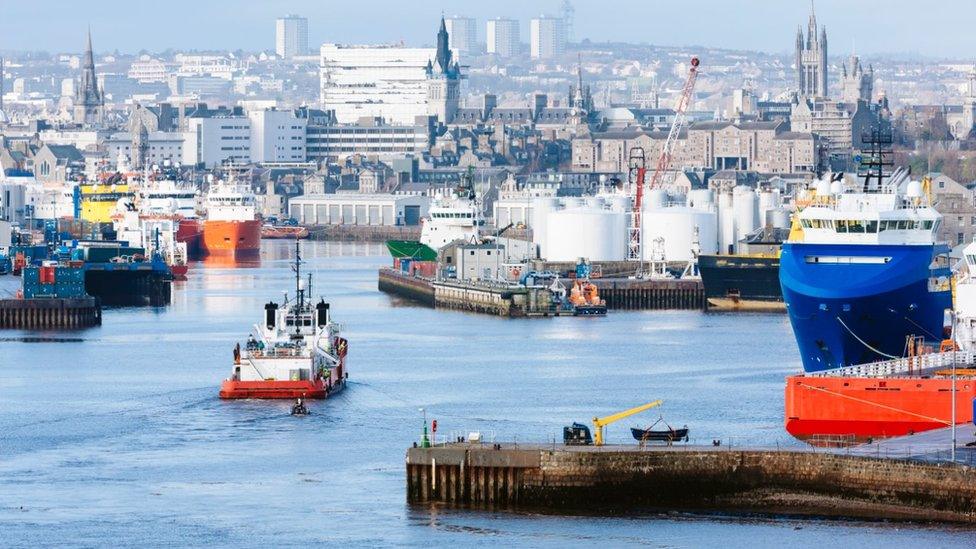
- Published25 October 2021
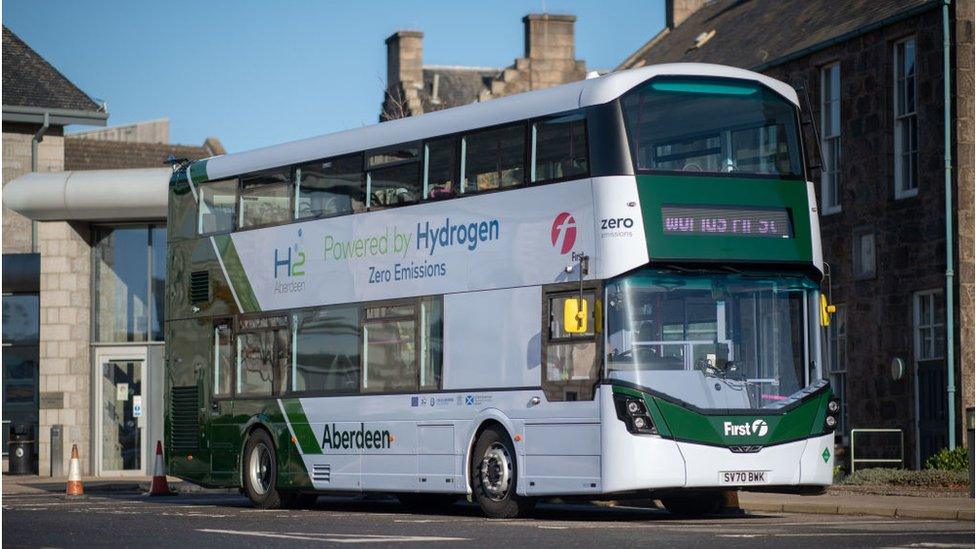
- Published7 July 2021
